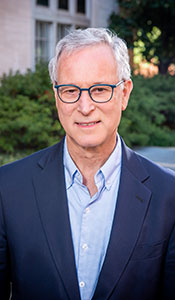In early November, several colleagues from the UAB NF Program attended the 2018 NF Conference in Paris. The annual NF Conference is an international meeting of NF scientists and clinicians that is usually held in the U.S. and is organized by the Children’s Tumor Foundation. This year CTF partnered, for the first time, with colleagues in Europe to further promote international scientific collaboration. As a result, the meeting attracted a larger international audience and was possibly the largest NF research meeting in history. Estimated attendance was approximately 900, which is far larger than the usual NF Conference attendance. The large attendance in part reflects the growing recognition of the importance of NF to our understanding of fundamental biological processes, particularly the initiation and progression of cancer, as well as the maturity of the techniques that are now available to investigate NF.
Regional Highlights
The most prestigious national award presented annually by CTF is the Friedrich von Recklinghausen Award, named for the German physician who first described ‘von Recklinghausen’s disease,’ now known as neurofibromatosis type 1. We extend our most sincere congratulations to Director of the UAB Medical Genomics Laboratory Ludwine Messiaen, Ph.D., named the 2018 recipient of the Friedrich von Recklinghausen Award, presented to individuals in the professional neurofibromatosis community who have made significant and lifelong contributions to neurofibromatosis research or clinical care.
Dr. Messiaen’s recognition with this award can be attributed to the numerous contributions she has made to the field of NF research. She became the first scientist to establish a practical, reproducible, and valid mutation testing method for the routine molecular diagnosis of NF1. Under Dr. Messiaen’s direction, the UAB Medical Genomics Laboratory is viewed in the medical and scientific communities as the gold standard and world leader of genetic testing for all forms of NF and has identified upwards of 3,000 distinct pathogenic NF1 mutations. Using this vast catalogue of variants, Dr. Messiaen has published numerous studies of genotype/phenotype correlations, providing information about the expected course of NF1 with a specific type of NF1 mutation. This information is helpful for both clinicians and patients in gaining a better understanding of the symptoms that are likely to be most prominent with a specific type of NF1 mutation. While this is not possible for every mutation, for some it is possible.
In addition to these achievements, Dr. Messiaen discovered a new genetic cause of schwannomatosis, specifically mutations in a gene designated LZTR1. This discovery has opened the way toward diagnostic testing and new approaches to study the biology of schwannomatosis. Most importantly, the UAB Medical Genomics Laboratory under Dr. Messiaen’s leadership has maintained an unparalleled commitment to serving clinicians and patients, always going the extra mile to assist clinicians and provide whatever support and help is needed regarding the process of mutation testing and validation.
Scientific Perspective
Several reports were provided during the conference regarding various clinical trials. Physicians from the National Cancer Institute (NCI) reported the results of a clinical trial indicating that selumetinib has continued to show efficacy in reducing the size of plexiform neurofibromas. The NCI clinical trial, which included a larger group of patients than previously studied, indicated that selumetinib was effective in reducing the size of plexiform neurofibromas in approximately 70% of patients with NF1. A trial of another type of drug called cabozantinib is also showing success in reducing the size of plexiform neurofibromas, through a mechanism different from selumetinib. There is now evidence that various approaches to treatment are gaining traction in treating plexiform neurofibromas, which was not the case a short time ago.
After four days of meetings, there was an interesting closing session of the conference entitled “NF: Past, Present, and Future,” providing reflections on how NF research has grown over the years. I’ve been engaged in the field for 35 years now, and those of us who began our work more than three decades ago could never have imagined where it would take us. We have been privileged to experience a remarkable evolution in the field of NF research during that timespan, and the ground that has been covered in the field is staggering. It was encouraging to see many young investigators present at the meeting and to know that the opportunities they face are very different from when the field was in its infancy 35 or more years ago. The work these young investigators are doing gives us great hope that that the pace of discovery for new and promising NF treatments will continue to accelerate.
